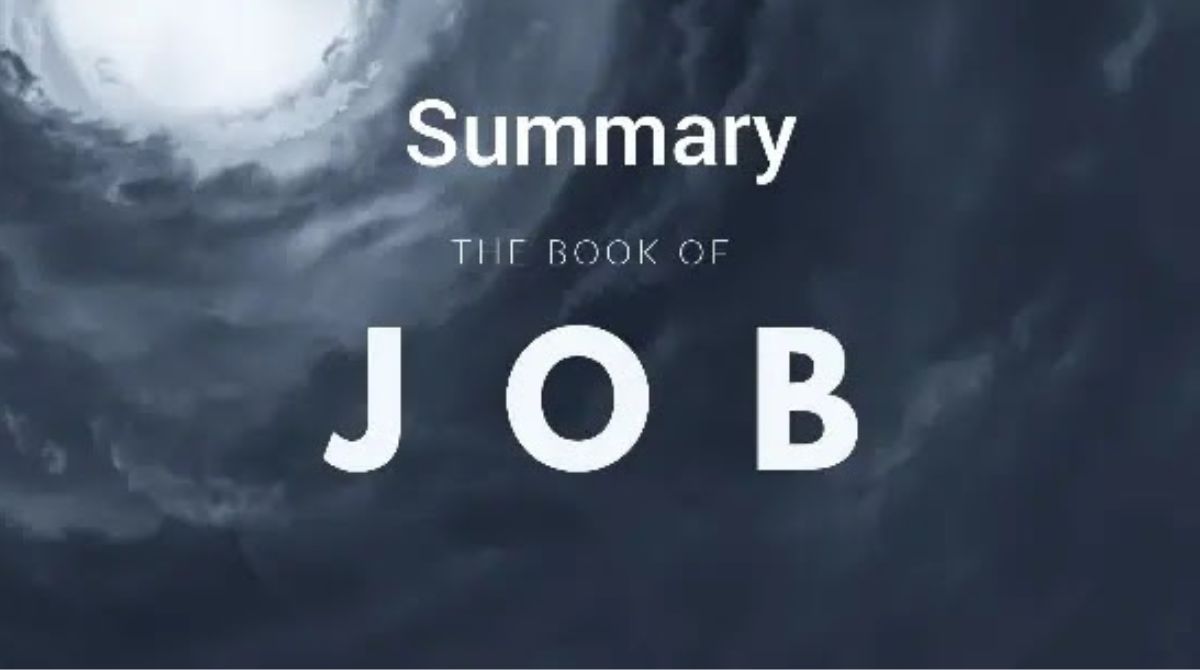The Book of Job, as one of the anonymous masterpieces of literature, that has come down to us from antiquity (written somewhere near 400 B.C) deals with a theme which is as old as humanity itself and as wide as the world i.e the reason of human suffering.
Summary: The Book of Job
The Book of Job is a wonderful creation written by unknown author. The central theme of the book is the eternal problem which has harrowed the mind of man from antiquity – the question of justification of divine retribution. The theological mind, the faithful mind has often been shaken by the fact that it is not always the guilty who is punished, but also the innocent who receives terrible hardship at the hands of God which has time and again baffled the human sense of divine justice and has thrown it into the chaos of disbelief and scepticism.
The inherent lure of doubt in the rationality of the moral order of God is manifest in the story of Job. But this is not straight forward. Rather the anonymous author has seized this opportunity to organize the whole theme through the conflict between doubt and death. The Prologue and the Epilogue are written in prose and form the setting of the poem which binds the middle or core of the whole book. Thus, the five divisions are like this –
Book of Job Chapter I & II
◇A. Chapter I & II form the Prologue. It introduces the characters and tells how they come together. Job, the Eastern Chieftain, is a pious man about whom it is decided in heaven to test the quality of his faith and he fells in mercy.
Book of Job Chapter III to XXXI
◇B. Chapter III to XXXI: It is the longest part of the poem. It contains the debate between Job and his three friends; Eliphaz, Bildad and Zophar. The debate itself is organised in the dramatic pattern of dialogues – between friends. This is the main body of the poem which consists of the next 39 chapters written in poetry. It comprises a debate between Job and his friends as to the reason of his sufferings.
All three speak in turn, and Job answers each after he has spoken. This is repeated three times, except that, according to the present arrangement of the book, Zophar who speaks last, fails in the third round of the debate to come forward.
The theory with which all three begin is that suffering is a certain proof of previous transgressions, and accordingly they all take a tone of rebuke towards Job and urge him to repent of his sin, whatever it may be, saying that if he does so God will restore to him his property.
To this trend of argument, Job boldly puts up his protest of innocence and though tempted at times to renounce God, he overcomes such a sin and boldly declares that there must be some unknown explanation of this moral problem of innocence and punishment. So his great desire is to come face to face with his Maker.
Book of Job Chapter XXXII to XXXVII
◇ C. Chapters XXXII to XXXVII: Elihu, a new speaker not previously mentioned, appears upon the scene and argues in a new vein and hence adds interest in the debate. Though Elihu rebukes both Job and his friends still most of his arguments are in the same line. He contributes, of course, two new points: (a) chastisement may be the expression not of the divine indignation but of the divine goodness and (b) it may be designed as a restraint to keep men from falling into further sin.
Book of Job Chapter XXXVIII to XLI
◇D. Chapters XXXVIII to XLI: God speaks out of the storm. He takes up the challenge of Job and overwhelms him with questions after questions designed to bring home to him the impossibility of his arguing with God, or understanding the whole scheme of Divine Providence. Job, completely humbled, repents in dust and ashes.
In a series of splendid pictures, God causes the panorama of nature to pass before the eyes of His human creature and overwhelms him to submission. It is a grand revelation of God’s omnipotence and not an explanation of the mystery of human suffering. In the vision of God which has come through the abyss of mystery, Job regains the old trust in God, but it is a deeper trust. The answer to his problems is not simply the manifestation of God’s power, it is God Himself. Job does not understand, he is content to be humble and to trust.
Book of Job XLII to Epilogue
◇E. Chapter XLII – Epilogue: The three friends are sternly rebuked by God. There is restoration of Job’s property. ‘The Lord turned the capacity of Job, and gave him twice as much as he had before.’
Conclusion:
What does the story of Job teach us?
The teaching of the The Book of Job is probably the hint that those true solution of all moral perplexities is to be sought in a fuller and larger sense of God’s presence and power and wisdom.
You May Like To Read More:
